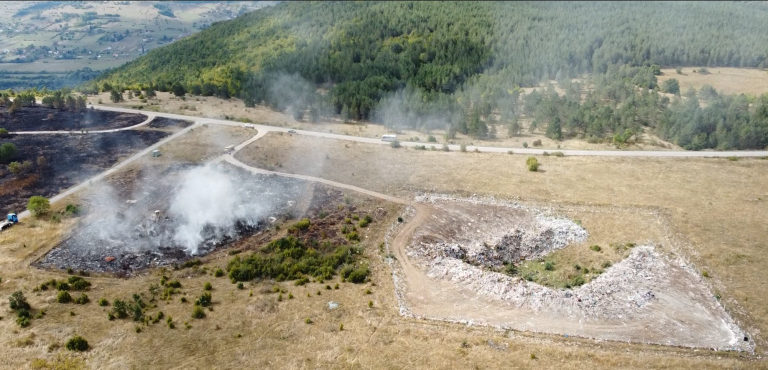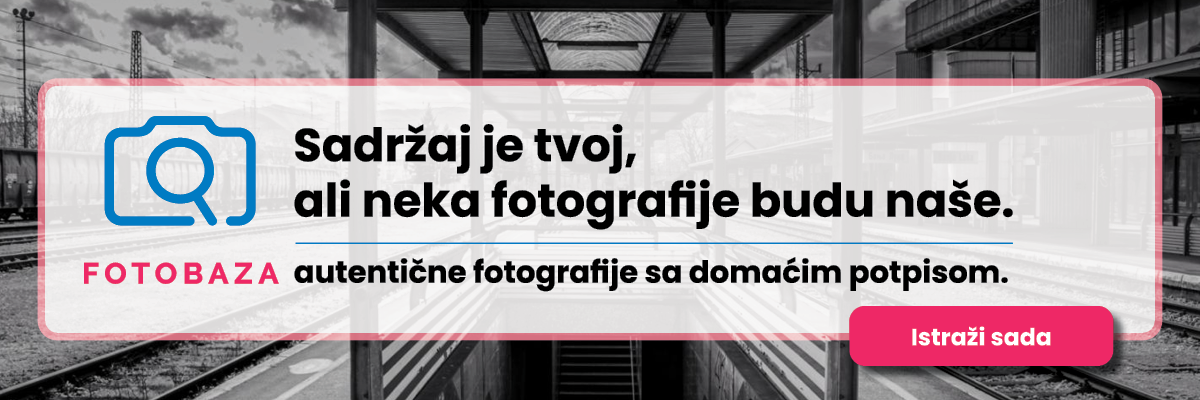Urban waste continues to be one of the biggest environmental challenges in Bosnia and Herzegovina and Albania. Despite efforts by local authorities to handle the increasing flow of waste, the current management systems show inefficiencies in both effectiveness and sustainability.
Text by: Oliverda Allmuca; Photo by Igor Kalaba
According to professor at the Faculty of Science and Mathematics, Dušica Pešević, “the lack of community education and insufficient infrastructure for waste sorting at the source in BiH are two of the main issues.”
Meanwhile, Valbona Mazreku, an environmental expert in Albania, emphasizes that “insufficient public awareness is another barrier to successful waste management.”
This issue is especially pronounced in rapidly urbanizing cities such as Banja Luka and Tirana.
Reports indicate that a significant portion of solid waste in Bosnia and Herzegovina ends up in landfills, most of which are not equipped to handle hazardous or organic waste.
The dominant method for waste disposal in Bosnia and Herzegovina is landfilling, accounting for more than 90%.
Currently, there are seven active regional sanitary landfills in Bosnia and Herzegovina, covering designated geographic areas. A total of 53 out of 143 municipalities in BiH participate in the regional disposal system—28 in the Federation of BiH (FBiH) and 25 in the Republika Srpska (RS)—while the others use municipal landfills that do not charge disposal fees.
“Municipal landfills often fail to meet the most important environmental criteria as they lack impermeable bases, gas collection systems, and leachate treatment systems,” explains Prof. Pešević. She adds, “Only 37% of municipalities use regional landfills due to additional transport and disposal costs at sanitary landfills.”
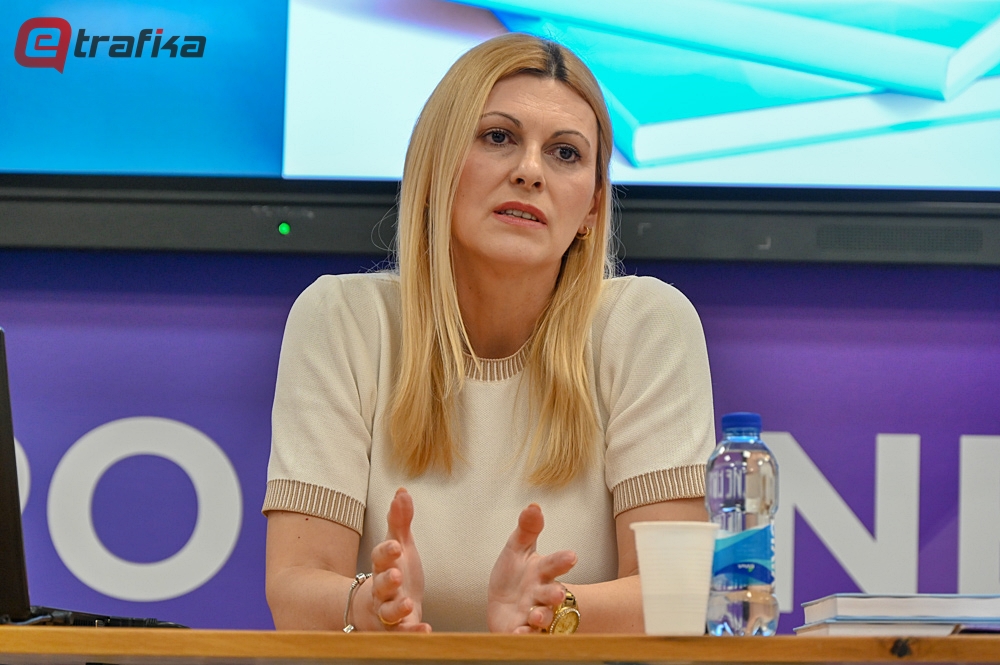
There are also four active inter-municipal landfills that are not of a sanitary nature, further heightening concerns.
One specific example is the main landfill near the city of Banja Luka. “This area is overcrowded, and the infrastructure has not been updated in years,” says Prof. Pešević. “In addition to environmental pollution, this problem directly affects the quality of life for local residents.”
Igor Kalaba from the non-governmental organization Center for the Environment, notes that “contamination from the landfill significantly impacts local biodiversity, including damage to aquatic ecosystems in the Vrbas River.” He suggests paying greater attention to the treatment of organic waste to reduce greenhouse gas emissions.
Sorting at source
In addition to overall waste management, sorting at the source has also failed, with negligible percentages achieved.
“The total amount of sorted waste is estimated to be around 5%, of which 3% comes directly from commercial, institutional, and industrial sectors, and 2% from households,” Kalaba reports.
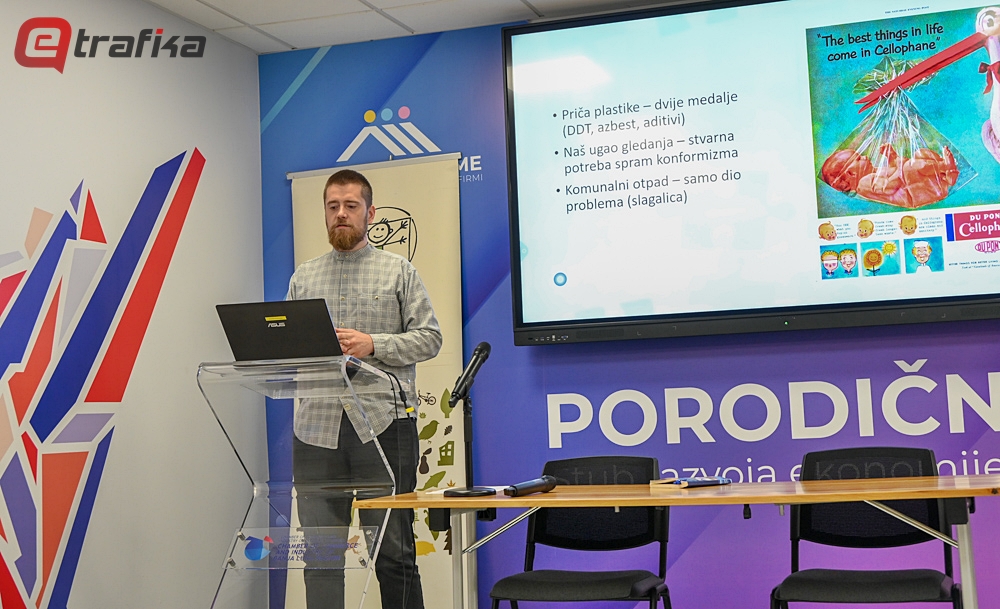
In Bosnia and Herzegovina, there is a dedicated system for managing packaging waste, implemented through municipal service companies and other organizations. Separated waste collection systems are applied in a limited number of municipalities, where some of the waste is sent to processing plants. In certain villages, a limited number of containers for selective collection of dry recyclable fractions (mainly paper and cardboard, PET packaging, and other plastics) have been installed. However, this system often does not function properly due to a lack of funding and capacity for its effective implementation.
“In BiH, there are no facilities for mechanical-biological (MBT) or thermal waste treatment. Existing waste sector strategies in FBiH, RS, and Brčko District include quantitative goals related to increasing recycling and reuse of certain waste categories and reducing the amounts sent to final disposal through more efficient use of resources,” Prof. Pešević explains.
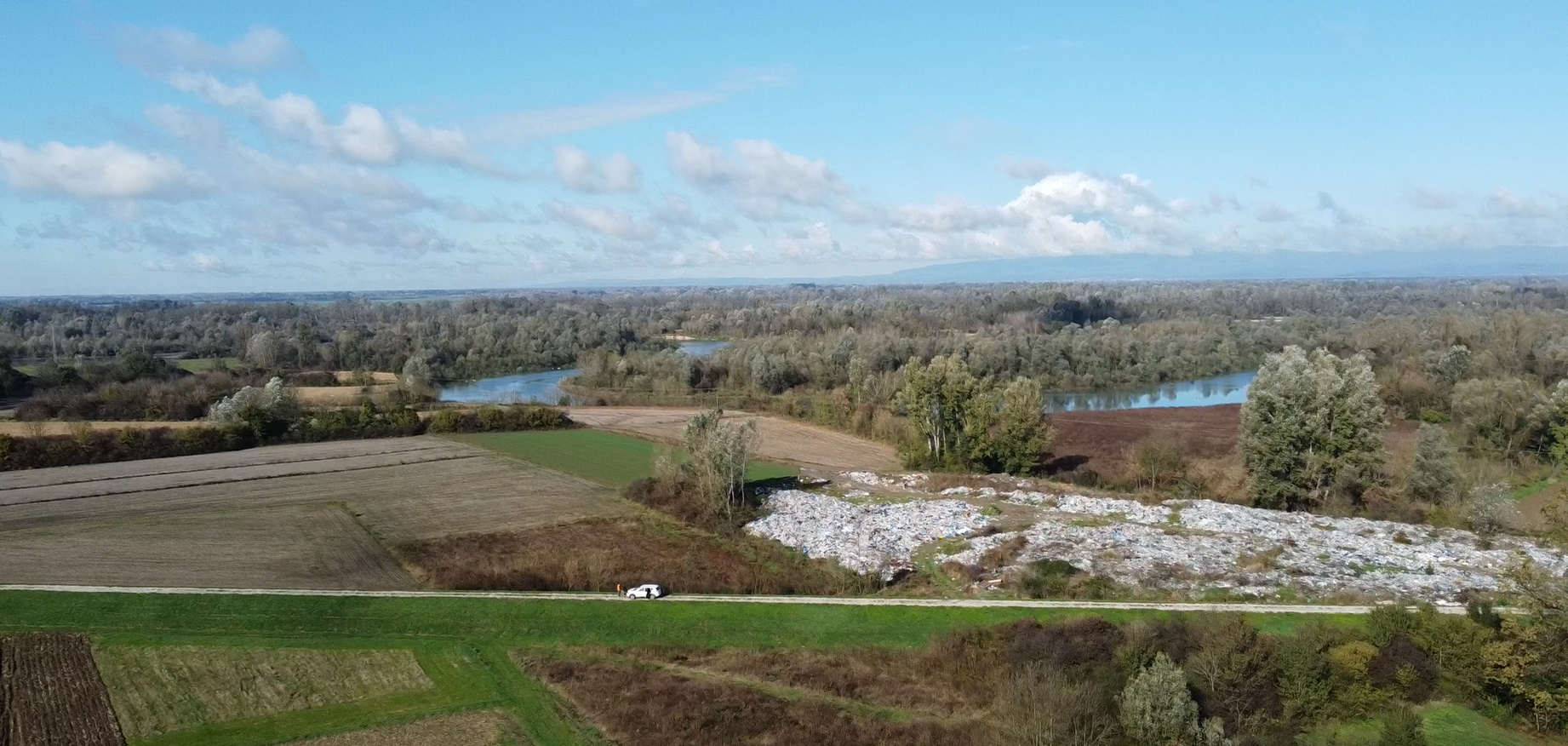
Social and economic impact
An often-overlooked aspect is the social and economic impact of inadequate waste management. Workers involved in waste collection and processing often face unsafe working conditions. Moreover, cities miss opportunities to create jobs in sustainable sectors such as recycling.
According to Prof. Pešević, “If there were an organized recycling system, not only would the amount of waste be reduced, but it would also create opportunities for employment and economic development.”
An analysis by UNDP also shows that improving waste management could create a new economic sector with benefits for local communities. Recent statistics from a report by the organization Center for the Environment indicate that only 10% of waste in Banja Luka is recycled, compared to the European average of 47%.
“This gap represents a lost opportunity for economic and social development,” says Igor Kalaba. He suggests that “investing in specialized recycling centers could yield multiple benefits, including reducing landfill dependency and creating new jobs.”
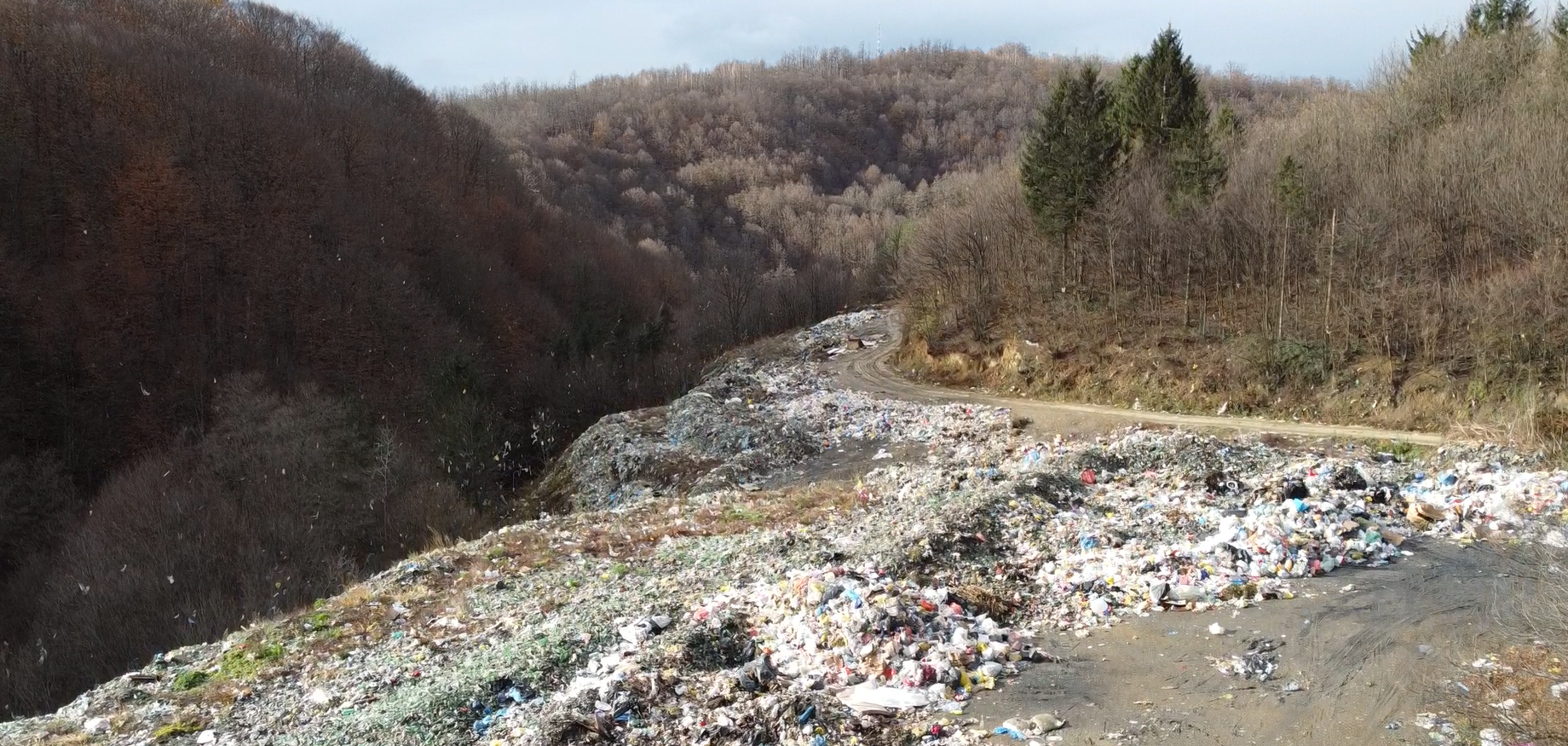
EU companies that implemented circular economy principles experienced an average 5% increase in employment from 2012 to 2018.
The progress of recycling
Very little of the collected waste is treated or recycled in BiH, with recycling rates fluctuating around 7%-10%, far from EU targets.
“One of the main barriers to transitioning to a circular economy is the region's historical context. The principles of this economy are not new; they are rooted in resource-saving practices born from scarcity,” explains environmental expert Milica Končar, adding, “With the rise of consumerism, these practices have declined, especially among younger generations. As the region transitions to more capitalist systems, the challenge lies in integrating these efficiency principles into modern economic practices.”
UNDP has long supported the “Map Solution” project in Bosnia and Herzegovina, part of which focuses on waste management. Amina Omićević, head of this project in BiH, says, “Through the innovative challenge, an active network of local activists was created, comprising over 100 individuals from various municipalities, working to raise awareness among the population about the behaviors and practices behind waste management issues.”
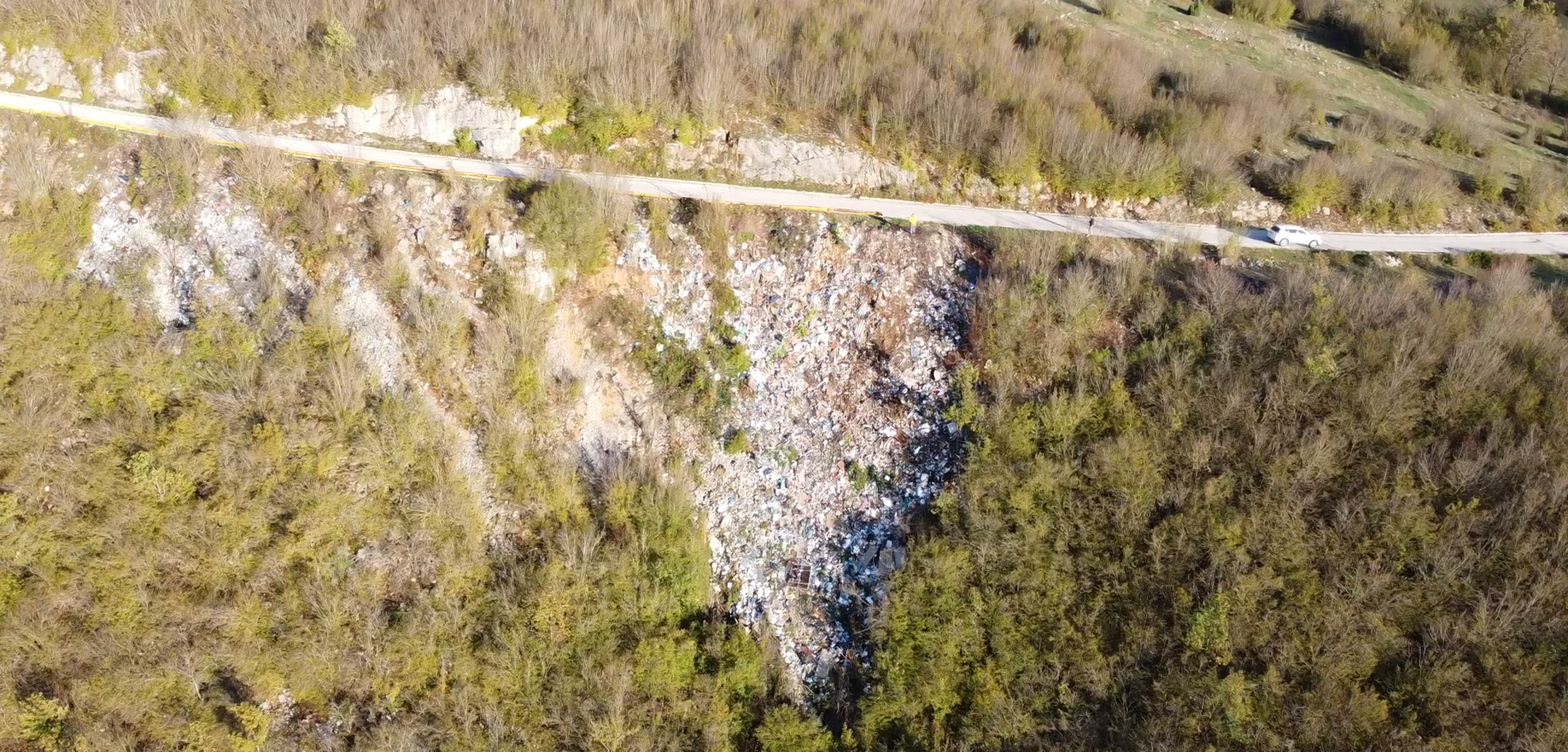
At a time when economic interests prevail over environmental principles, recycling seems to bring benefits without compromising either side. From an environmental perspective, circular systems can help address critical issues such as resource depletion, biodiversity loss, and climate change.For businesses, adopting circular practices such as repair, reuse, and recycling can reduce costs, improve efficiency, and foster innovation.
In the European Union, circular activities generated approximately €155 billion in added value in 2017, a 17% increase compared to 2011.
Positive examples
The circular economy portfolio developed by UNDP in collaboration with the Chora Foundation includes seven specific intervention areas targeting circularity for certain industries in Bosnia and Herzegovina.
“One of these interventions,” Pešević explains, “aims to expand experimental work on waste management, digitizing waste reporting and mapping material flows in large manufacturing companies to understand how waste can become a resource for the economy. Through this initiative, we learned that nearly a quarter of raw materials are lost in our industry before becoming a final product.”
Meanwhile, Končar explains that despite challenges, some businesses in BiH have already succeeded in adopting circular economy practices.
“Companies like Wool-Line, which uses local wool to create high-quality products, and Wood Surgery, which restores old furniture, are pioneers in circular initiatives in the country. Moreover, Veteks, a local textile company, has reused materials and utilized solar energy since 2010.”
These businesses demonstrate growing awareness of circular economy principles and the potential for local businesses to develop into more sustainable and resource-efficient systems.
Propposed solutions
Experts like professor Pešević emphasize that sustainable solutions must be integrated and supported at all levels of society. She proposes a strategy based on three main pillars. First is community education, “campaigns to encourage sorting waste at the source and reducing plastic usage.” Second is infrastructure improvement, investments in modern equipment for waste collection and treatment. And third one is promotion of recycling and composting, which could significantly reduce the volume of waste sent to landfills.
Overall, experts agree that the solution lies in political will. Collaboration with local governments, businesses, and NGOs is a key aspect of ensuring the success of waste management initiatives.
Environmental expert Igor Kalaba states that, “Implementing new technologies for waste treatment and creating recycling centers can transform Bosnia and Herzegovina into a leader in environmental sustainability.”
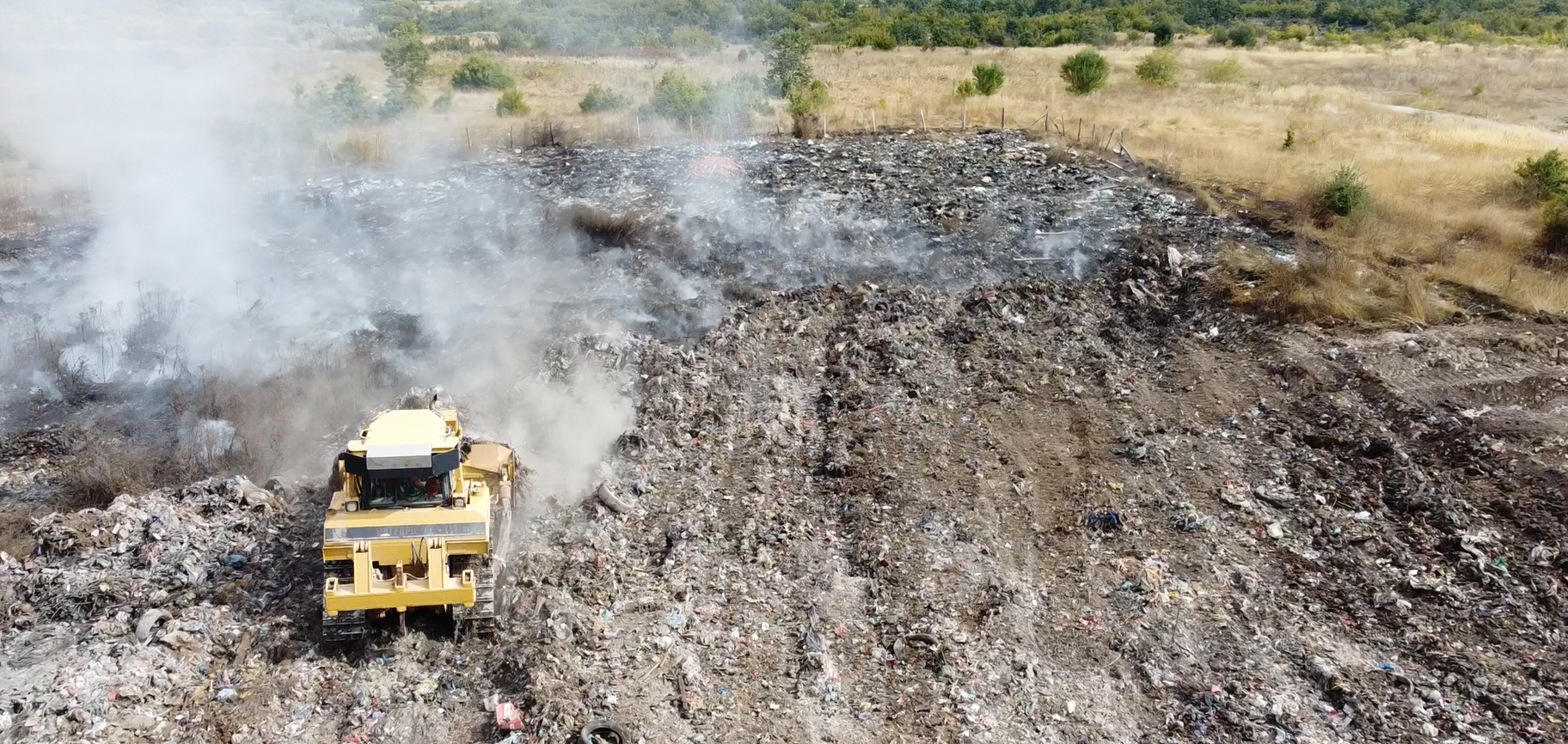
He emphasizes that BiH must involve more NGOs and local communities in the decision-making process.
“Only through a comprehensive approach can we achieve sustainable results,” Kalaba stresses.
Even the Map Solution would not have been successful without consultations with stakeholders.
“Activities around circular economy in small and medium enterprises and entire industries, such as the wood and textile industries, included defining vision and consultations with relevant stakeholders, including architects, engineers, contractors, developers, government representatives, policymakers, academics, and civil society organizations. This collaborative approach helps formulate core functions, scope of work, and sustainability strategies for activities,” says Amina Omićević.
Končar also confirms that “Governments play a key role in encouraging the transition to a circular economy. A combination of policies that ban linear practices and promote circular systems is essential.”
She cites Austria as an example, where subsidies for repairs and tax reductions for repaired products have been used to promote circular practices.
In BiH, implementing such policies tailored to the local context could stimulate the shift to a circular economy.
Current state of waste management in Albania
The establishment of two incinerators in the cities of Fier and Elbasan, as well as the plan to operationalize a third one in Tirana, seems to have hindered the project for integrated waste management in Albania.
This is because the vast majority of waste ends up in landfills and incinerators, eliminating efforts for source separation, differentiation, and the main process aimed at by the European Union—recycling.
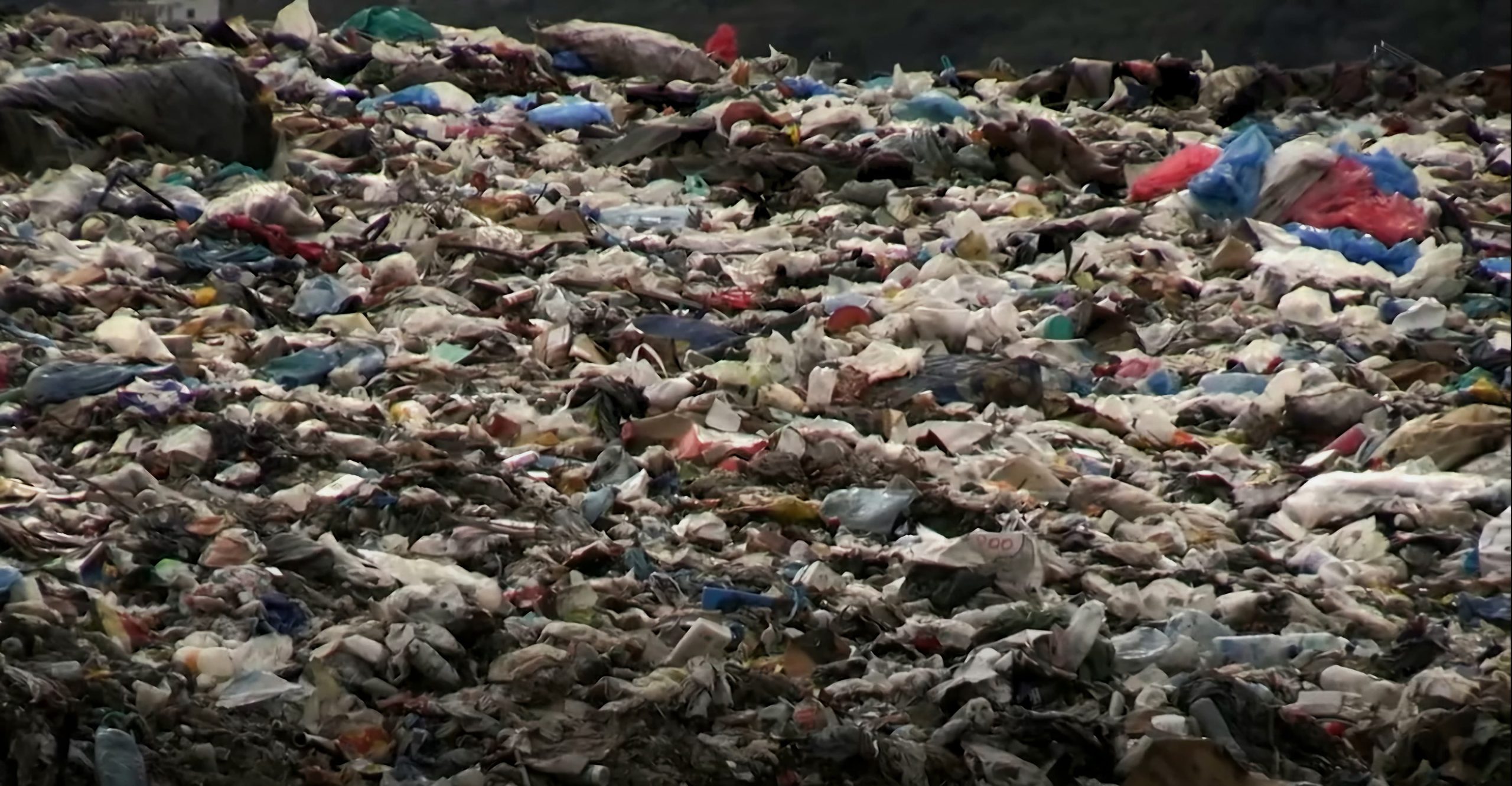
Municipalities, which bear the primary burden of waste management, face numerous challenges such as lack of funds, outdated infrastructure, and insufficient public awareness.
Although there has been some progress, field experts believe the current situation is still far from the desired level. Two well-known experts in this field, Valbona Mazreku and Edlir Vokopoja, share their perspectives and suggestions for improving waste management in the country.
Mazreku, an environmental expert, highlights that waste management in Albania is still far from meeting the expectations and needs of its citizens. She notes that the current waste management infrastructure is insufficient and outdated, leading to garbage piling up on streets, often remaining there for days without being collected.
According to her, “waste management must be viewed in all its stages, from waste creation to final treatment,” and this requires an in-depth analysis of the behavior of citizens, businesses, and administrations.
One of the main challenges, according to Mazreku, is the lack of infrastructure and strong plans for recycling and reuse. She emphasizes that “insufficient public awareness is another barrier to successful waste management.”
Regarding current policies, Mazreku expresses skepticism about the use of incinerators and landfills as sustainable solutions. “Recycling in Albania has failed so far,” she says. “The schemes used have not been successful.” She suggests that extended producer responsibility could be an effective mechanism to manage waste from the source.
When comparing Albania to other countries in the region, Mazreku states that Albania has a similar situation, with problems such as substandard waste collection and disposal, similar to those faced by neighboring countries.
On the other hand, Edlir Vokopoja, a waste management expert, acknowledges that despite some efforts, Albania still has a long way to go to meet the required standards.
He highlights that one of the key priorities is the approval of policies and strategic documents, such as the “Strategic Policy Document for Integrated Waste Management” and the “National Sectoral Plan for Solid Waste Management,” which are a step forward in tackling waste issues.
According to Vokopoja, “these documents define the objectives and necessary infrastructure for successful management, but regional infrastructure needs to be further developed, including recycling plants and transfer stations.”
Vokopoja also emphasizes the challenge of extending waste management services to rural areas, where sufficient infrastructure for waste collection and disposal is often lacking.
“Municipalities also face difficulties in setting a fair fee for waste management services, which would cover costs and allow for the necessary investments to improve services,” he says.
Another challenge, according to Vokopoja, is the lack of an effective system for sorting and collecting waste at the source. He states: “Waste management is a sector that requires a cross-sectoral approach. This means we need to work in many directions: supporting municipalities, awareness campaigns for citizens, and implementing extended producer responsibility schemes.”
Regarding the use of incinerators and landfills, Vokopoja is more open to the possibility of using incinerators but only after all recycling and reuse options have been exhausted. “Incineration can be an option, but only after all other steps for efficient waste management have been taken,” he says.
Possible solutions and future perspectives
To improve the waste management situation, both experts suggest several concrete measures. Mazreku highlights the need for building sustainable infrastructure for recycling and reuse, as well as for clear policies on waste treatment that address every stage of the chain. She also underscores the importance of educating and raising public awareness about waste management and recycling.
On the other hand, Vokopoja stresses that “a cross-sectoral approach and closer collaboration between local and central actors are necessary to create a sustainable waste management system.” He also suggests investing more in appropriate infrastructure and providing incentives for businesses that contribute to waste management and the development of a circular economy.
In conclusion, both experts believe that Albania has the potential to improve its waste management system, but this requires greater commitment from authorities and other stakeholders, as well as proper and long-term planning.
Incinerators
Although primarily an environmental issue, incinerators have turned into a political hot topic in Albania over the past few years, as what was supposed to improve the waste management scene has ended up being one of the country’s biggest corruption scandals. Several high-ranking officials have been arrested for corruption and abuse of office related to this scheme.
But what are incinerators?
Currently, Albania has three incinerators: in Tirana, Elbasan, and Fier. The one in Tirana has never started operations, even though it continues to receive millions of euros in regular payments.
In 2014, the Albanian government made a 180-degree shift from the national strategy approved in line with the European Commission directive, which prioritizes waste prevention and recycling, considering incineration as a last resort.
Waste treatment through incineration is a known method. The burning of waste materials converts them into ash, gas, and heat. The energy generated from waste burning, as outlined in the incinerator contracts approved in Albania, was supposed to be used to generate electricity.
But this never happened!
Dorian Teliti, a member of Tirana’s Municipal Council, points out that the waste management policy was criticized in the European Union’s 2018 progress report. According to him, “in the country’s municipalities, the regulation set by the Municipal Council was not respected, and decisions to bypass recycling and move directly to incineration were made without the opposition’s approval.”
Teliti claims that the entire affair was driven purely by economic motives. “Environmental preservation and care for people's health were not part of the political agenda. The process lacked consultations with field experts or international actors. There were no studies or data related to the waste management system, which has now officially failed.”
Incinerators are viewed as problematic by environmental experts, who argue that Albania has the capacity to reject outdated methods that harm public health and cause irreversible environmental damage.
Toxic waste: A persisting issue
Beyond waste management, other issues have surfaced in Albania. For over a month, 1,200 tons of allegedly toxic waste have been sitting in Porto Romano, Durrës. The waste, which was shipped toward Thailand, was flagged as toxic by the Basel International Network and returned to Albania. Despite the passing time, authorities have yet to provide any explanation about the situation.
Jim Puckett, a representative of the Basel network, expressed concern over the delay in sampling and testing the material to determine whether it is hazardous.
“Officially, we’ve learned that no samples have yet been taken from the waste/material, and authorities are still looking for a laboratory. It is concerning that it’s taking so long to conduct sampling and analysis. However, we hope they are not taking their investigative duties lightly. Something should have been done by now, but we are still waiting.”

According to him, the network has sent clear guidelines to the Albanian government regarding the matter but has received no response.
“We prepared evidence with detailed information to support the Durrës Prosecutor’s investigation and offered advice on how to test the waste using chemical analysis. Unfortunately, their regulations did not allow me to submit the information remotely, so we are exploring ways to deliver this evidence physically.”
Meanwhile, members of the Durrës Municipal Council have demanded transparency from the Prosecutor's Office, monitoring of the situation, and sampling to be analyzed in independent laboratories, which they claim are currently lacking.
A few weeks ago, residents living near the hazardous waste deposit in Durrës protested against its presence close to homes and grazing areas. The Basel network has previously raised concerns about the health risks posed by such waste, emphasizing that due to its powder-like form, exposure in an open environment would make its spread alarmingly easy.
If the waste is confirmed to be hazardous—a claim the network insists is 95% certain—it could pose cancer risks for those exposed to it.
Positive steps toward recycling
The GIZ program, a European-supported initiative aimed at helping Albania address its waste management challenges, has implemented a pilot project achieving the recycling of green waste and paper in several municipalities.
Christine Koenig, the head of the German government’s GIZ program, highlights that Albania ranks among the lowest in Europe for recycling rates, even as EU directives require reductions in landfill-bound waste.
“In Albania, only 18% of waste is recycled. The EU directive mandates significant reductions in landfill-bound waste and aims to increase recycling rates to 65% by 2035,” she explained.
Koenig added that “organic waste, which accounts for over 50% of total waste in Albania, has enormous potential to improve recycling rates.”
For Koenig, it is essential for Albania to meet the objectives of the Circular Economy project, ensuring alignment with EU environmental standards. Two recycling centers currently operating in Albania, Belsh and Roskovec, serve as positive examples for other municipalities, even though they remain in early development stages.
Miranda Cebeli, director of composting at the Roskovec center, described the technical processes carried out at the facility.
“All plant waste, whether discarded legally or illegally, as well as green waste generated by greenhouses or the municipal greenery team, is collected and brought here. After being cleaned of unnecessary debris, it is ground into compost using machinery.”

Cebeli emphasized that the resulting organic fertilizer is of high quality.
“Since the fertilizer is produced from ground branches, mowed grass from gardens, leaves, and leftover vegetables from markets or greenhouses, its quality is excellent.”
Roskovec Mayor Majlinda Bufi stated that while recycling organic waste has been successful, it is still in its early stages.
“By collecting waste from agriculture, we’ve managed to produce organic fertilizer. This fertilizer has been used in city parks and gardens, and we aim to package it for sale in other cities as well.”
In addition to green waste, Bufi mentioned that the municipality has also started recycling paper and cardboard.
“Today, we separate paper and cardboard. Although the quantities are not significant due to the size of our municipality, we successfully collect, sort at the source, and recycle. For us, the important part is reaching the point of gathering, sorting, and recycling.”
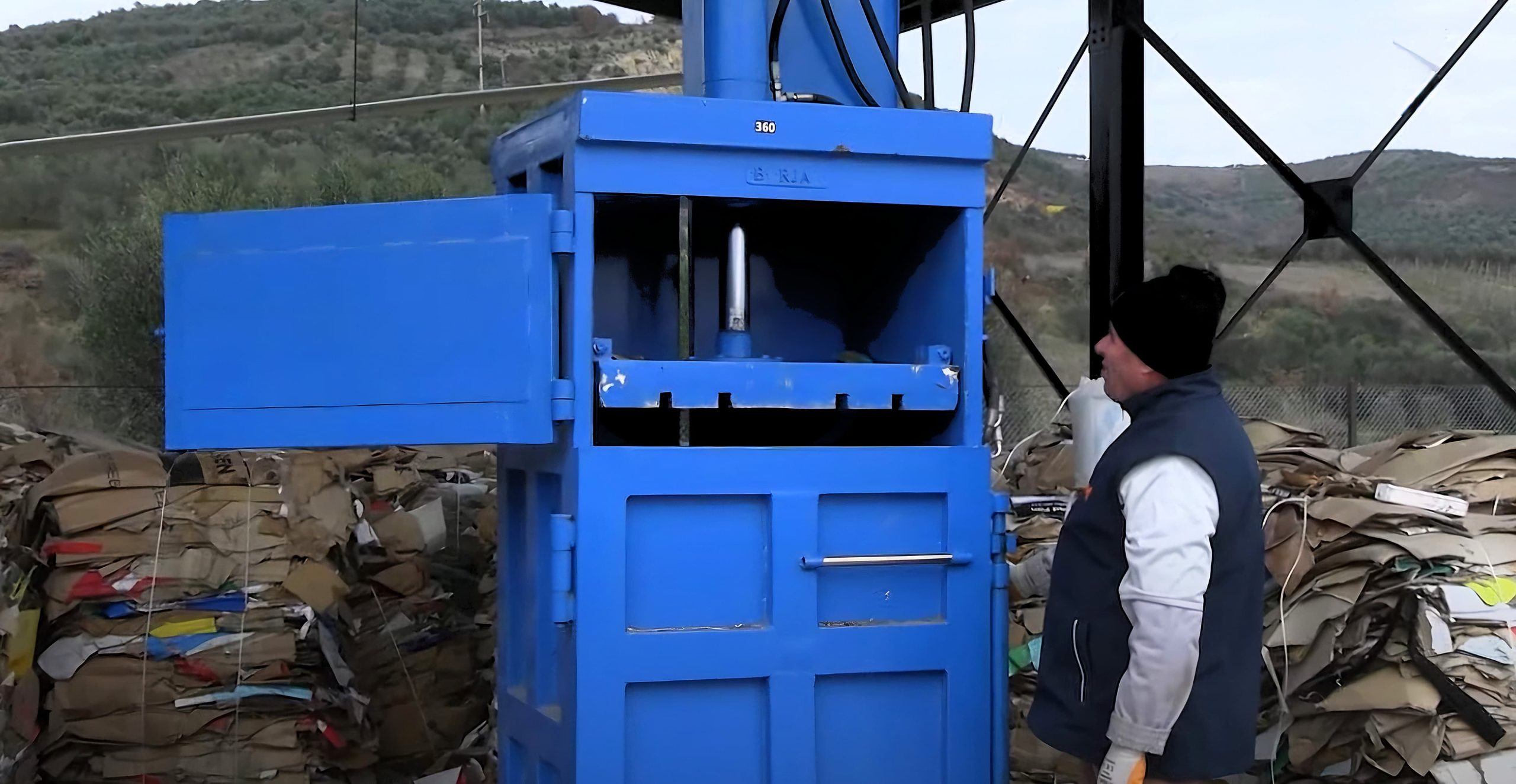
She noted that this process has generated additional income for the Roskovec municipality. However, Bufi admitted there is still a need for greater awareness among citizens and businesses.
“In 2024, we produced approximately 2,500 tons of cardboard, generating additional revenue for the municipal budget. However, there is certainly room for improvement. Citizens need more awareness and information to prevent waste from being dumped on roads or into canals. Educating farmers and citizens is crucial to ensure waste is no longer a public health concern.”
A similar approach is evident in Belsh Municipality, where Mayor Arif Tafani highlighted that recycling agricultural waste not only reduces costs for transport and incineration but also contributes to the local economy through organic fertilizer production and cardboard recycling.
“For several months, we have processed green waste generated by agriculture, which is a key activity in Belsh. This has reduced the amount of waste we send to incinerators, saving costs for both transport and disposal. Additionally, this method supports the local economy by producing organic fertilizer and recycling paper. We’ve sold the cardboard we produce, generating additional revenue. This approach keeps the municipality cleaner, reduces costs, and protects the environment.”

According to Tafani, the goal is also to achieve the separation of waste at the source, specifically paper, cardboard, and glass, which is one of the biggest challenges for municipalities across the country.
“We initially started this step with businesses, while we are on the ground every day to raise awareness among citizens to start this practice in their homes.”
The most recent case is in the municipality of Berat, where a new system for managing solid waste has been implemented, funded by Sweden and other donors, which separates recyclable waste from non-recyclable waste. This model, which aims to generate income from waste, includes the placement of 500 specific bins throughout the city.
Mayor Ervin Demo states that the main challenge is educating citizens. “We are aware that in Albania, the waste separation model does not start from homes. It requires continuous awareness, a lot of work, and patience.”
According to Demo, “the citizens of Berat seem to have the will, as do the businesses.” He hopes that the process will be embraced quickly, providing a lesson for all other municipalities.



